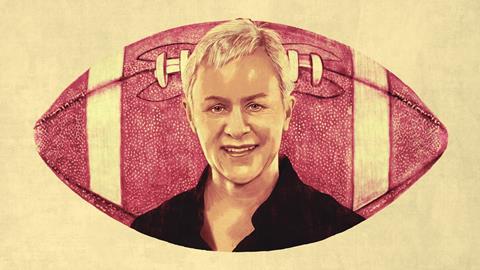The pharmaceutical executive on why chemistry clicked for her, and life as a female organic chemist in the drug industry
Margaret Faul is a synthetic organic chemist who is vice president of drug product technologies at the US biopharmaceutical company Amgen. She has helped spearhead the company’s green chemistry efforts, and previously worked as a research scientist at Eli Lilly. Faul has also served on the editorial boards of several chemistry journals and is the namesake of Thieme Publishers’ Women in Chemistry Award that honours young female chemists for their achievements in organic chemistry.
I was born in Tralee, in County Kerry, Ireland and was there for about the first year of my life. But we landed fairly early in my youth in Dublin, so I spent most of my time growing up there, in a village called Dalkey that’s on the south side of Dublin and sits right on the Irish Sea.
There were a lot of physicians on both sides of my family. My one granddad was a very well-renowned doctor, and my other granddad was a pharmacist. Many of my aunts and uncles were either doctors or pharmacists, although a few were priests or nuns. I had a lot of role models in the medical field, so I always knew I would go into some element of that sector.
One of my favourite parts of my undergraduate studies was being in the lab at University College Dublin. I like working through logic sequences to be able to solve complex scientific problems, and it just kind of really clicked with me.
The way that chemistry works, and organic chemistry in particular, is that you develop a series of reactions to get to your products, or you have to figure out what the problem is to solve it and be able to improve the output of your reaction. Synthetic chemistry takes the molecules from medicinal chemistry and develops the commercial processes that can ultimately supply and deliver those molecules to patients on commercial scale, which can be on the order of hundreds of kilograms.
We use a lot of different types of reagents, maybe toxic or hazardous reagents, to put our molecules together. So, it’s really important to build a sustainable, green chemistry culture into the processes from the very beginning.
The number of women in process chemistry was very small when I entered the field, even in graduate school. Then, when I went to Eli Lilly in the 1990s there were only a couple of women within the process chemistry organisation. It was definitely a challenge starting out, and it was an environment where you had to prove yourself to be successful and demonstrate that you knew what you were doing.
Many sponsors and mentors have given me opportunities that, to be honest, I never thought I’d have. People see things in you that you may not see yourself.
We’ve done a lot of good work empowering women in organic chemistry conferences
I’ve been fortunate to have some great allies throughout my career. Things have evolved, and slowly the tide is turning. We’ve done a lot of good work empowering women in organic chemistry conferences and different types of symposia to support, build and enable a more diverse culture. It broadens the ideas and perspectives. It gives different solutions, different ways of thinking about problems, from people with different backgrounds and experiences.
I’m an outdoors person and spend my time outside of work either hiking or biking. I also spend time with my family. I’ve got three boys that are grown up and in different stages of their lives. One of them is in college football, so we spend a lot of time following him around. He is the kicker for the University of Southern California Trojans. They had a good season last year, and we’ll see how they do this year. My others two sons have already graduated from college and are engineers.
My best advice is to be yourself, be authentic. Stand for what you think is right. Have integrity and recognise that everybody brings value into the world.
The impact of Covid-19 on the supply chain and pharmaceutical development has been pretty significant. The logistics of how we move materials – how long it takes to ship them so that they arrive in particular locations in time – has completely changed, mostly for the better. We really had to strategically think about what kind of timeframes we need to get the inputs, like raw materials and other components, to be able to manufacture and deliver the medicines to patients. That became front and centre through the pandemic.
My home office is a good place to come and think, it’s quiet because the kids are now all gone. But sometimes you need to step away from work to really sort through complex problems. Often going out and walking around the park or hiking up the hill behind us can help me to think about things in a different way.
There are many important unanswered questions in science. The biggest one is probably whether we are the only ones in the universe. When you look at all the data coming out, and you think about the whole of the galaxy, are we really the only ones? Another is whether we will we ever cure cancer. Cancer is a diverse disease, and we’ve come a long way. But it’s complex – how do you develop molecules to treat such a grievous illness?


















No comments yet